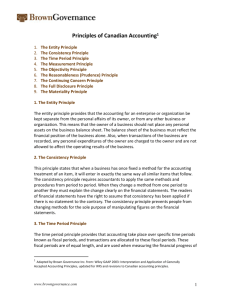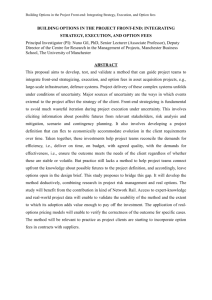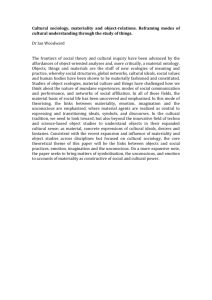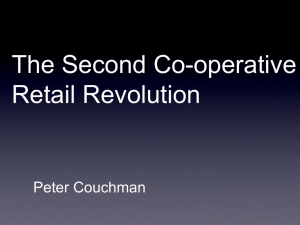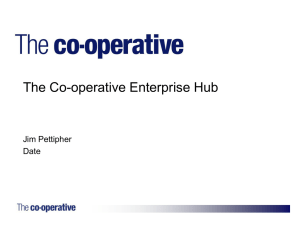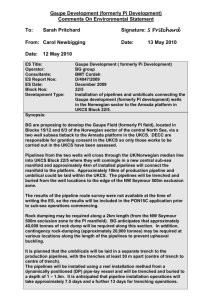Commercial Code of Practice
advertisement
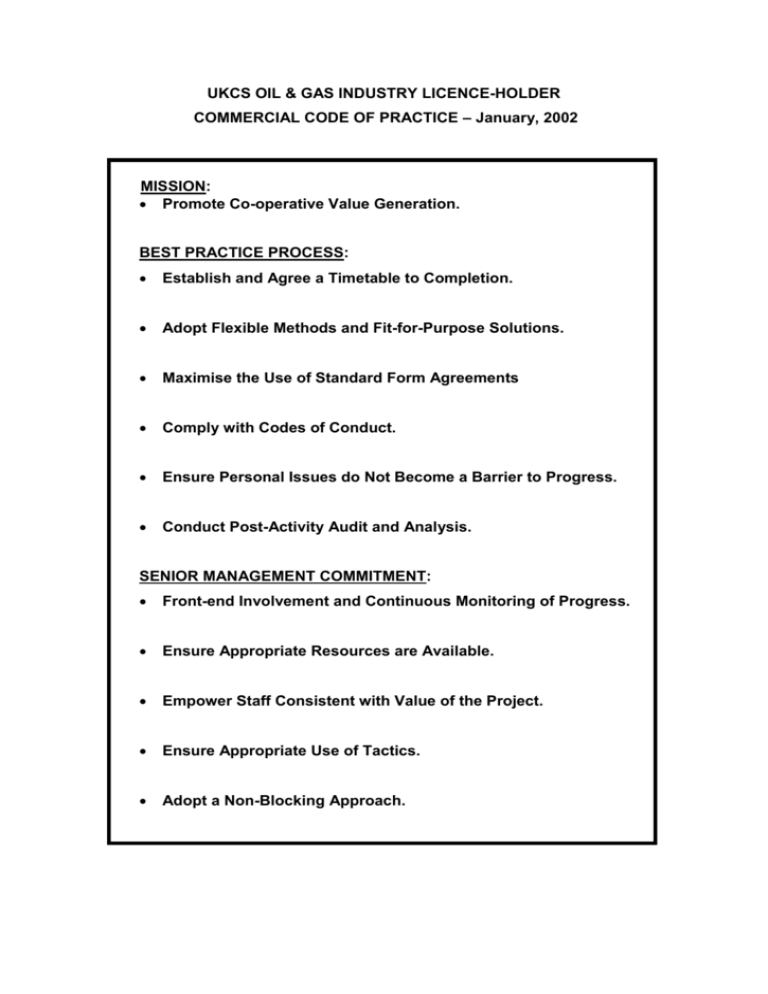
UKCS OIL & GAS INDUSTRY LICENCE-HOLDER COMMERCIAL CODE OF PRACTICE – January, 2002 MISSION: Promote Co-operative Value Generation. BEST PRACTICE PROCESS: Establish and Agree a Timetable to Completion. Adopt Flexible Methods and Fit-for-Purpose Solutions. Maximise the Use of Standard Form Agreements Comply with Codes of Conduct. Ensure Personal Issues do Not Become a Barrier to Progress. Conduct Post-Activity Audit and Analysis. SENIOR MANAGEMENT COMMITMENT: Front-end Involvement and Continuous Monitoring of Progress. Ensure Appropriate Resources are Available. Empower Staff Consistent with Value of the Project. Ensure Appropriate Use of Tactics. Adopt a Non-Blocking Approach. UKCS OIL & GAS INDUSTRY - LICENCE-HOLDER COMMERCIAL CODE OF PRACTICE – Supporting Notes MISSION: Promote the principle of co-operative value generation. Note: This is a reference to the use of Best Practice to achieve win-win solutions rather than seeking to maximise an individual position, possibly at the expense of a transaction not going ahead at all. It is not a suggestion that companies should surrender value, but that they should consider a wider picture, which maximises total value, followed by a view of fair sharing of that value. BEST PRACTICE PROCESS: Agree turn-around times on responses consistent with an up-front timetable to completion. Note: Possibly a resource issue, but also an attempt to change the culture to a faster, less formal system. Consider incentivising staff, and possibly companies, on early completion of transactions. Encourage a shift from traditional negotiation processes to quicker, more flexible methods. Note: Emphasis by Senior Management of their commitment to accept streamlined procedures, possibly reflecting best practice from other areas. Other examples would include facilitation, arbitration and use of third party experts. Accept fit-for-purpose solutions, both Commercial and Technical. Note: Reference to the 80/20 rule and a commitment to rapidly close out negotiations once the major points are agreed. This should be extended to include liabilities and financial guarantees. Additionally, technical specifications should not be more rigorous than necessary. Promote the use of Standard Form Agreements. Note: Over 99% of licences now have licensees who have signed up to the Industry Master Deed. Comply with Codes of Conduct. Note: e.g. The Infrastructure Access Code. Ensure personal issues do not become a barrier to progress. Note: Delinking professional and personal issues. Conduct Post Audits. Note: To ensure compliance with this Code of Practice, and to establish a learning culture based on feedback SENIOR MANAGEMENT COMMITMENT: Front-end involvement and continuous process monitoring. Note: The Code of Practice should be endorsed, by signature, by Senior Management of active UKCS companies. Senior Management should present and explain the Code to their commercial staff as a guidance document on the conduct of commercial activity. They should emphasise that they personally have committed to the Code. This is seen as giving staff performance standards and setting out Senior Management’s expectations on performance. Senior Management should review how the code is going to be implemented at the initial stages. In particular, they should review the materiality issue and delegate authority/ accountability to the right level in the organisation. That level should then ensure that adequate attention and resources are given to negotiating and completing the transaction. Using the Code, Senior Management, at a level appropriate to the scale of the transaction, should engage in the commercial process at the front end to demonstrate their commitment to the process, and also to give them early knowledge of issues which may arise and be subsequently brought to them for consideration and approval. This front-end involvement and demonstration of commitment by Senior Management is seen as the critical factor in changing the culture currently prevalent in this area. Ensure appropriate resources are available. Note: Management issue. Empower staff to commit the company to commercial terms. Note: Reference to low levels of delegation associated with commercial issues and the barriers and delays experienced when these type of transactions, no matter how small, require senior management review and approval. Possibly match approval levels with materiality. Ensure materiality differences do not become a barrier to progress. Note: Reference to the difficulties experienced in progressing transactions when companies, who may regard them as being too small to devote resources to, are involved. Ensure the appropriate use of commercial tactics in negotiations. Note: A reference to the practice of linking unrelated deals, use of unanimity to block, allowing approval periods to expire, etc. as a negotiating tactic, rather than positively seeking co-operative value generation. Adopt a non-blocking approach. Note: A commitment to stand-aside to allow other parties to conduct activities if they so wish rather than blocking or delaying progress. Small equity holders should recognise majority views in areas requiring unanimity. Companies who elect to stand-aside to allow a transaction to progress should be allowed sufficient opportunity to realise fair-value on their investment prior to exit.

